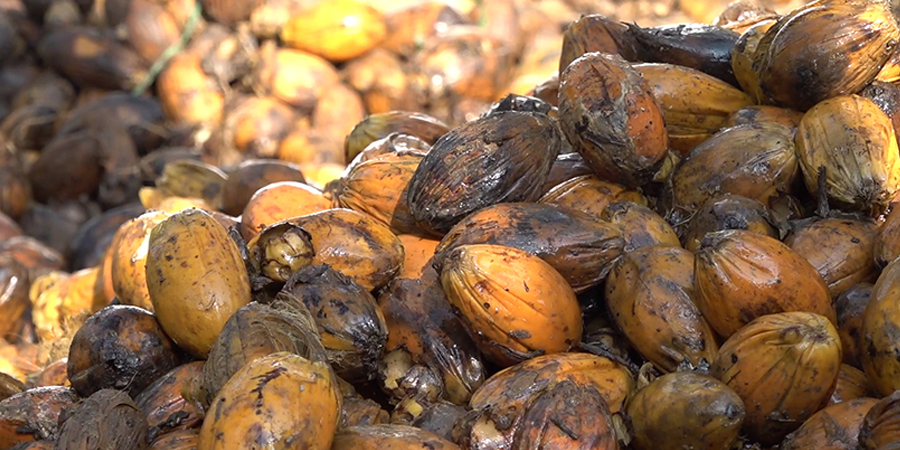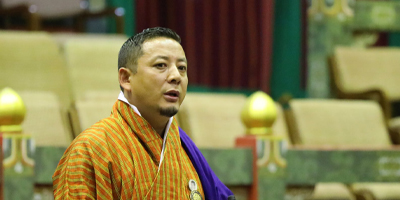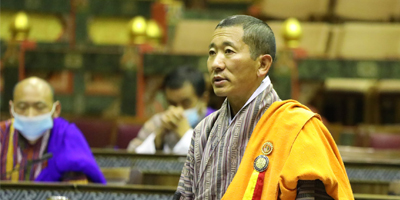
A group of entrepreneurs in Samtse came forward to address the betel nut demand recently. They bought most of the betel nut grown in Samtse to supply within the country and curb import. To succeed, they wanted the government to intervene. It looks like their prayers are answered- the Prime Minister, during the question hour session of the National Assembly today, said the government will focus on meeting the local demand of the betel nut from within the country.
The National Assembly’s Member of Parliament (MP) from Bumdelling-Jamkhar constituency in Trashi Yangtse questioned the Prime Minister regarding the government’s plans to facilitate the export of betel nut to India. He said the betel nut growers in the south haven’t been able to export the nut to traders in India due to the pandemic. The MP also questioned the Prime Minister on why the government is allowing the import of betel nut when the local growers are facing difficulty in exporting it.
 “Most of the people in the south grow betel nut for commercial. They sell it at a comparatively cheaper price than the imported nuts. But despite this, our people in the south are challenged with marketing the nut. They haven’t been able to export it like in the past,” said MP Dupthob, from the Boomdeling-Jamkhar constituency Trashi Yangtse.
“Most of the people in the south grow betel nut for commercial. They sell it at a comparatively cheaper price than the imported nuts. But despite this, our people in the south are challenged with marketing the nut. They haven’t been able to export it like in the past,” said MP Dupthob, from the Boomdeling-Jamkhar constituency Trashi Yangtse.
Prime Minister Dr Lotay Tshering said Bhutan will not be able to export the nut to India as India itself is among the largest producers of the nut in the region. Lyonchhen said export during the pre-pandemic period is done unofficially with traders from the neighbouring towns coming into the country and buying the nut from the farmers on the spot.
“Betel nut grown in the country do not fulfil India’s import criteria. As such India will not allow its traders to import betel nut from Bhutan. As they are one of the largest producers of the nut in the region, Indians will also question their government as we raised it today,” Lyonchhen said.
The Prime Minister also said the country should rather focus on training the locals on fermenting Doma to avoid importing it at a higher price during the lean season from India. Today, local growers sell the unripe nuts for Nu 20-25 per kilogram and import the fermented nuts at Nu 250 to 300 per kilogram from India during the lean season.
 “To export, we will first have to train our people to climb the areca nut trees so that they can harvest. And then teach them the fermentation processes. Then we will be able to meet local demands. To this effect, we have even started works at the Dhamdum Industrial Park in Samtse. We have around 150,000 pon of betel nut being fermented there. After fermentation, they will send it to the peeling centre set up in Paro. If we do that and focus on meeting on local demand, we need not think about exporting,” Lyonchhen said.
“To export, we will first have to train our people to climb the areca nut trees so that they can harvest. And then teach them the fermentation processes. Then we will be able to meet local demands. To this effect, we have even started works at the Dhamdum Industrial Park in Samtse. We have around 150,000 pon of betel nut being fermented there. After fermentation, they will send it to the peeling centre set up in Paro. If we do that and focus on meeting on local demand, we need not think about exporting,” Lyonchhen said.
Besides, the MP raised concerns over the health implications the imported betel nut has. He said imported Domas are found to be treated with di-sulphide which is a chemical substance that is being studied for a number of clinical studies due to its highly toxic potential.
The Prime Minister said a study is being carried out.“For the fermentation process, the nut is being treated with either chemical or stored underground covered in cow dung. They add di-sulphide as a taste enhancer. After we heard reports of the use of di-sulphide, we have been studying the health implications of the chemicals.”
Bhutan produces about 15,000 tonnes of betel nut. The Prime Minister said this should be enough to meet the local demand.
Phub Gyem/Tshering Zam
Edited by Sonam







